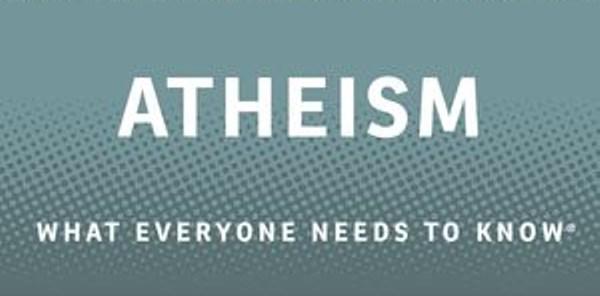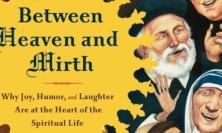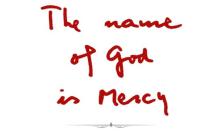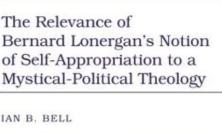This book purports to ‘lay out dispassionately the issues surrounding atheism, the arguments against it and the arguments for it, its critics and its supporters’, to ‘move beyond the polemics and look at the underlying issues’, to offer ‘a balanced look at the question of atheism’. We are told also that the connecting theme of the work is that atheism is an ‘intensely moral issue’. It counts as such in the sense that the real question is ‘whether morally we should believe in God or the gods’ – after all, it is immoral to believe something without sufficient evidence.
The time is certainly ripe for a study of atheism, for – ‘New Atheists’ notwithstanding – the real issues are entirely unclear, the prevalent assumption being that we know exactly what atheism is: that it is a matter of denying the existence of God or gods, and that it stands opposed to theism. Ruse himself operates with some such understanding, and as should also be clear from what little I have said on his behalf, it is an atheism which is evidentially motivated, the complaint being that there is insufficient evidence for theism. But how is the notion of evidence, and indeed, sufficient evidence, to be understood? I believe on hearsay that I was born in Harrogate on 2 November 1964. Do I have sufficient evidence for this belief? If my evidence is not sufficient, I may still believe it because I can’t help it – as figures like Aristotle and Spinoza have made clear, belief is not immediately in the power of the will. This shows incidentally that although I may be wrong to assent to a particular belief, it can hardly be immoral – although it may be immoral of me not to take steps to remove it.
What of the evidence for belief in God? Would it be sufficient evidence if ‘the heavens cracked open and [a] Zeus-like figure …made his presence and nature known to the world’?[i] Paul Moser has pointed out that God is not in the trivial entertainment business regarding our coming to know His existence, such ‘spectator evidence’ being more appropriate to our favourite fantasy figures.[ii] As he says of Bertrand Russell’s anticipated response to a post mortem encounter with God: ‘God, you gave us insufficient evidence’, ‘Insufficient for what? For Russell’s highly questionable expectations of God?’[iii]
Discussions of miracles are often pitched at the level of special effects, and Ruse introduces the issue by claiming that there is an argument for the existence of God which ‘seizes on the fact that the world is not entirely law-bound!’ He asks us to imagine what it would be like if someone at a student party were to turn water into Bordeaux (rather than cheap Spanish plonk), offers the ‘fairly standard’ notion that a miracle is an ‘intervention, a breaking or suspension of the laws of nature’, and in response to the story of the loaves and fishes, asks whether it would not be better to explain it all naturalistically: ‘it was not that Jesus was a high-class caterer – a kind of divine, take-out entrepreneur – but that he so filled people’s hearts with love that they shared their food with others’. The idea that Jesus filled people’s hearts with love takes us beyond the realm of special effects to what is arguably the best kind of evidence for God’s existence. We might even be tempted to talk of the miracle of love in this context, at the cost though of fudging the distinction between God’s ever-present and sustaining activity – God’s grandeur as Hopkins would have it – and the situation in which it makes sense to describe this activity as ‘miraculous’. Whatever this sense is we must surely question Ruse’s commitment to the idea that it’s a matter of divine intervention, lest we make a nonsense of the ‘doctrine of the everpresent active involvement of the creator in his creatures’ (Herbert McCabe).[iv]
Ruse spends some time tackling the question of the relation between science and religion, citing the Nobel Prize winner Steven Weinberg’s claim that ‘one of the greatest achievements of science has been, if not to make it impossible for intelligent people to be religious, then at least to make it possible for them not to be religious. We should not retreat from this accomplishment’ (p.106). He cites Weinberg again: ‘[t]he more the universe seems comprehensible, the more it seems pointless’, adding that ‘this, as is so often the case in these sorts of discussions, opens the way to the moral judgement.’ The moral judgement remains unclear, and Ruse does not raise the question of where this leaves the point of scientific research.[v] We are told that the ‘elite scientists’ were always ‘less God-believing than regular scientists’ (p.103), and that the life of an elite scientist today is ‘simply going to be more secular and sophisticated than for people working at land grant institutions, places where instructors are probably much more oriented to their communities – communities where God plays a large part’ (p.106). There’s clearly something to be said for unsophistication, and Ruse’s elite scientists notwithstanding, it is simply not true that the best scientists of our age have been atheists. Witness Albert Einstein: ‘You will hardly find one among the profounder sort of scientific minds without a religious feeling of his own’;[vi] Werner Heisenberg: ‘The first gulp from the glass of natural sciences will turn you into an atheist, but at the bottom of the glass God is waiting for you;’[vii] and John Polkinghorne: ‘There is much more to the Mind of God than physics will ever disclose, but this usage is not misleading, for I believe that the rational beauty of the cosmos indeed reflects the Mind that holds it in being.’[viii]
It is unclear in any case why the opinions of an elite scientist should shed any light upon the question of the relation between science and religion, unless, of course, such a figure has some theological or philosophical expertise. Indeed, one of the problems with the book as a whole is that it operates for the most part with the kind of theism which makes an atheist response so tempting in the first place. Either God is an ideal form like a 3,4,5 triangle or ‘one of the gang like the rest of us only more so’ (p.131); ‘we haven’t had much luck with the father. What about the son?’(p.134); ‘that [our sinful nature] should all be due to Adam seems a little farfetched’ (p.143); ‘you, God, put a couple of very inexperienced young folk down in a garden and left them to the seductive wiles of a very clever serpent’ (p.142). It is not always clear whether it is Ruse himself speaking, and the force of the relevant difficulties is sometimes undermined. Nevertheless, there is little to convince an open-minded atheist that the God option could be remotely persuasive – nothing to suggest, for example, that the doctrine of original sin is rather more profound than this ‘farfetched’ story implies, and that it is reproduced in the work of some of the most well-known atheists of our tradition, such as, for example, Nietzsche and Heidegger.[ix]
One could respond – as I believe one should – that these figures are not genuine atheists. Yet this raises the question of what atheism really is, and whether there is something deeper to identify than the issues with which Ruse is engaged. Nietzsche talks disparagingly of the atheists in the market place who think that it’s a matter of removing an irrelevant addition to a world which can function all the better in its absence.[x] This is the attitude of the atheist who takes his fire from the likes of Dawkins and Hitchens, and Nietzsche’s objection is that such a figure fails to see what is really at issue here: it’s a matter of ‘unchaining this earth from its sun’ rather than ridding ourselves of a childish superstition. Ruse notes Nietzsche’s ‘existential angst and despair’ at the prospect that ‘God is our construction’, describes his position elsewhere as one according to which God is ‘irrelevant’ (p.42), and brings the discussion to a close with the claim that The Gay Science has nothing to do with happiness or sexual orientation (p.39). Perhaps a better contender for ‘what everyone needs to know’ in this context is a late notebook entry in which Nietzsche claims that, ‘what isolates us is not that we don’t find any God, either in history, or in nature, or behind nature – but that we feel what was revered as God to be not “divine”’.[xi]
Dawkins and his gang insist not merely that God is irrelevant to anything that really matters, but that religion is evil – Ruse cites Dawkins’ belief that bringing up a child as a Catholic is a form of child abuse, and Weinberg again: ‘Good people will do good things, and bad people will do bad things. But for good people to do bad things – that takes religion’ (p.211). It is undeniable that evil things are done in the name of religion, and Ruse’s example of the problem of sexual abuse in the Church is an obvious case in point. Indeed, this example offers the starkest illustration of a claim with which Ruse elsewhere takes issue, namely, that ‘things like sexuality are not altogether good things’ (p.183) – this in the context of decrying the general trend in Eastern religions towards asceticism. Sexuality is clearly not altogether a good thing – which does not mean, of course, that it is inherently evil – and even Nietzsche grants the virtues of a certain kind of asceticism.
Ruse concedes that there are no good grounds for concluding that religion per se is evil, claiming that there is ‘fairly solid evidence that the religious do eat more sensibly, take more exercise, and smoke and drink less’ (p.247). I question the solidity of this evidence, find it unremarkable that ‘believing Jesus died on the cross for your sins does not protect you from cancer’, and wonder how this could be the sort of thing that everyone needs to know. I suspect that Ruse agrees, and the ‘envoi’ of the book reveals a gentle and endearing attitude of non-belief which comes, we are told, from the theological and philosophical difficulties which seem to destroy the central claims of Christianity and related religions. Ruse is absolutely right to flag these difficulties, but he has done nothing to undermine religion, except perhaps those varieties which demands an attitude of atheism. It should be clear that the true theist has nothing to fear, and we should be alert in any case to the distinction between being religious and believing in God. As Georg Simmel put it, a religious man might not have found his god, just as an erotic man might have found no-one to love.[xii]
Fiona Ellis is Reader in Philosophy at Heythrop College. Her book God, Value, and Nature is recently published by Oxford University Press.
[i] Paul Moser uses this example in his The Elusive God (New York: Cambridge University Press, 2008), p.128. It comes from N.R. Hanson’s What I Do Not Believe and Other Essays (Dordrecht: Reidel, 1971).
[ii] The Elusive God, p.130.
[iii] Ibid., p.37.
[iv] ‘The Involvement of God’, in God Matters (London: Continuum, 2005), p.51.
[v] Mary Midgeley makes this point in her ‘Darwinism, Purpose and Meaning’, Philosophy and Religion, Royal Institute of Philosophy, Supplement: 68, 2011. As she puts it: ‘But if the universe has already been shown to be pointless, why can it be important to study its workings? What is this meaning that the researchers are looking for? Why are they doing science at all?’, pp.199-200.
[vi] ‘Mein Weltbild’ in Ideas and Opinions (New York, Crown, 1954) p. 40.
[vii] Ethos No. 10 (October 1988).
[viii] Belief in God in an Age of Science (Yale University Press, New Haven, 1998) p. 4. I thank Stephen Priest for drawing my attention to these passages, and for allowing me to read the manuscript for his forthcoming book The God of the Physicists.
[ix] See Stephen Mulhall, Philosophical Myths of the Fall (New Jersey: Princeton, 2005).
[x] The Gay Science, ed. Bernard Williams, trans. J. Nauchkhoff (Cambridge: Cambridge University Press, 2002), section 125.
[xi] Writings from the Late Notebooks, ed. Rüdiger Bittner, trans. Kate Sturge (Cambridge: Cambridge University Press, 2003), 11 [122].
[xii] ‘The Problem of Religion Today (1911)’, in Essays on Religion, trans. Horst Jürgen Helle (New Haven and London: Yale University Press, 1997), p.10.






